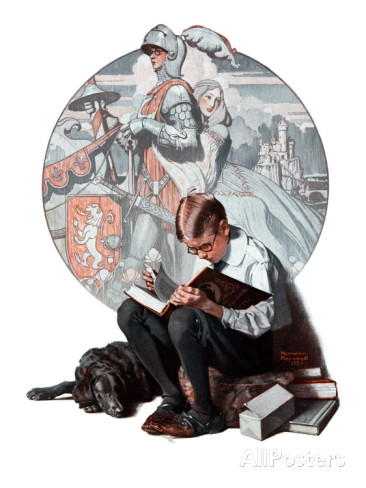As I consider David Hick’s work Norms and Nobility, I do not intend to trace his argument for you. Instead, I want to highlight a few ideas that encourage me to further consider my teaching and my children’s education. The first is his idea of the formative power of mythos or story.
I think it is essential that we realize that this is not NEW; in fact, Hicks argues it is the basis of a true Classical education.
The mythos (story) represents man’s imaginative and ultimately spiritual effort to make this world intelligible; the logos sets forth his rational attempt to do the same.
and
A good myth, like a good map, enables the wanderer to survive, perhaps even flourish, in the wilderness.
Are the stories in your home equipping your children to survive in the wilderness?
This idea of story isn’t about writing your story for empowering or even re-writing it for the sake of healing. These are two popular trends in understanding and using story today and there is value in them. However, Hicks calls us to a use of story that is more fundamental than that - mythos creates an Ideal Type that lays an outline for behavior, action and attitude.
If Hicks is arguing that this is the basis to Classical education, why does this seem so novel? Is there a proper way to use story in this formative way? We need to reclaim this tool of learning for ourselves and our children.
Story is essential to a "good" grammar stage
Currently, when many of us think of the “grammar” stage or grammar within the trivium it can be boiled down to memorization and facts. Kids can remember a lot of things so lets take advantage of it! I was reminded as I went through the 5 Elements of a Classical Homeschool course of this much more fitting definition from The Liberal Arts Tradition.
Consider, for example, what a reader should know in order to properly interpret The Aeneid, and one will intuitively grasp the nature of grammar in its classical sense.
When I heard this I thought of the muses playing together. That is the point; and they call this stage "musical education" in the Liberal Arts Tradition for that exact reason. Stratford Caldecott, in Beauty in the Word, calls it remembering. Memory is the mother of all the muses. For me, this wider definition of grammar is freeing. We are learning facts and information so that we better understand the story - the story is the point!
Story is not optional or extra, it is essential to who we are. As Andrew Kern frequently points out, God, our creator, gave us many stories and then the law. He created us to learn from story and example. So, if grammar is really about stories, how do we do it well?
Which stories
As Christians our ideal type is Jesus. So, how do we present Him to our children.
Traditionally, Christians memorized the Psalms - it was the song book of faith. It reflects many Biblical stories and shows how we pray and interact with God. Its serves as a template and many Psalms point towards Christ. Many of them aren't pretty and show the anguish and struggle of faith - something our kids need to know about.
Charlotte Mason encourages us to memorize the parables. Why would that be? She understood the role of stories. Knowing a parable can speak to us over and again - sometimes we are the prodigal son and sometimes the older brother. The story calls us to reflect and can be a “map” when we are wandering. Jesus spoke in many parables but he only explained one. In our current age, we often try to memorize random, key verses (often with a head knowledge but no heart) and apply them like band aids. Band aids haven't yet healed a wound.
She also encourages that children be read the Gospels over and over again. This testifies to her faith in seeing Jesus as He is, in Scripture, as enough to instruct them in what the Christian ideal type is. Often we add extra, good things (catechisms, adaptations, object lessons) but fail to do the one essential thing - read the Word. This has challenged me to just read it to my kids chapter by chapter (maybe I'll even do what Dwane Thomas suggests and have us listen to it in Latin as well)!
Additionally, in a standard Mason curriculum, Plutarch and Shakespeare, in the original, are introduced in 4th grade. To our current mindset this doesn’t fit. We aren’t sure what to do with these stories - aren’t they above our kids? They can’t possibly analyze them well. All the better, because they are included, not for comprehension, but for formation and maybe even transformation. I checked out a book on Plutarch’s educational philosophy but ran out of time to read it - I intend to get it back (I’m not too concerned that anyone else out there cares). Plutarch literally wrote the classical book on Ideal Types. Shakespeare's works provide us with a wealth of characters - fictional and real - that can inform our lives. By setting Ideal Types in our child’s mind we are calling them to enter into the possible and giving them examples of ideals in action.
We don’t bat an eye about giving children the definition of courage and then asking them to follow it up with copywork (maybe even a Bible verse). How much better to read a real story (not a contrived one) about someone who was courageous (or not)? Which will you remember longer? We have eliminated story as a legitimate educational tool because you can't measure the impact of a story. Fortunately, we can show you that they clearly know the definition and even wrote it out! You have to decide which is more meaningful to you and your child in the long run.
Teaching the story
Before I started re-reading Norms and Nobility I decided our house needed more artwork. Here are two that I picked out: Norman Rockwell - Age of Romance, Llull - The Tree of Science:
 and
and 
I now see how these two represent different ways to approach story. The first is the classical way - imagining you are in the story, a part of it, submitting yourself to its influence. The second is more analytical - it is a virtue tree from the middle ages. It is trying to help logically illustrate and analyze parts to make a whole. It's much like using a plot outline from day one to "enjoy" a story. I like what Hicks says
myth defies analysis, especially in instruction, and happily usually survives it.
There is something to knowing the plot outline of a story but that doesn’t bring us closer to the Truth. When I was in 6th grade I went to see Field of Dreams and I was caught up in analyzing the mystery of it all. I saw it again and realized I had missed the whole point. By analyzing it, I missed the relationship.
How do we draw children into the story so it can help form them?
First, I think of the power of narration. Retelling brings them into the story and makes them think about it. However, this natural interaction allows the relationship to develop between the child and the story without outside expectations or interference (read comprehension questions).
Second, do your kids play the story? Young children naturally become St. George or whoever they are reading about. Watch them and see what they are learning by the way they are playing. Older kids will play with stories in different ways - telling jokes, quoting lines, using it in their writing and conversation, etc.
Third, the art of questioning. There are a few key questions (none original to me but some I can’t exactly trace):
Andrew Kern’s favorite (explained by Buck Holler) - Should (this character) have done (this action)?
ex: Should Martin Luther have burned the papal bull?
What other (character or situation) does this call to mind or remind you of?
ex. Do Charlotte’s actions remind you of another character or person?
Do you see (virtuous attribute) in this story?
ex. Do you see honor in this story?
How is this (character or situation) like (another character or situation)?
ex. How is Ebenezer Scrooge like Donald Trump?
With young children I would use these basic questions, as students get older using the five common topics (this blog post is a wonderful example) can go a long way. See how these questions draw the reader into the story and ask for analogic answers. These are life long learning questions that will yield fruitful analogies, deep conversation and bread if you end up as a “wanderer” in the wilderness.
Children will naturally wonder if they have what it takes to be like the Ideal Types that they hear about. Are they hearing about someone worth being like?
Although I have heard about mythos, story, as fundamental to forming character, and really the point of education, for quite a while, I just couldn't grasp it. I was thinking analytically - lets break it into chunks and work on these parts. Good stories are analogies and dissection leads to death; much like explaining a good joke, ruins it. They are meant to be received whole and often speak to us in ways that we can’t articulate. We need to let that be okay in us and in our children. The fruit we want is a life well lived, not a momentary answer well crafted.
I hope my children say “Once upon a time in a story I . . .”

